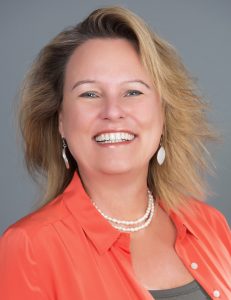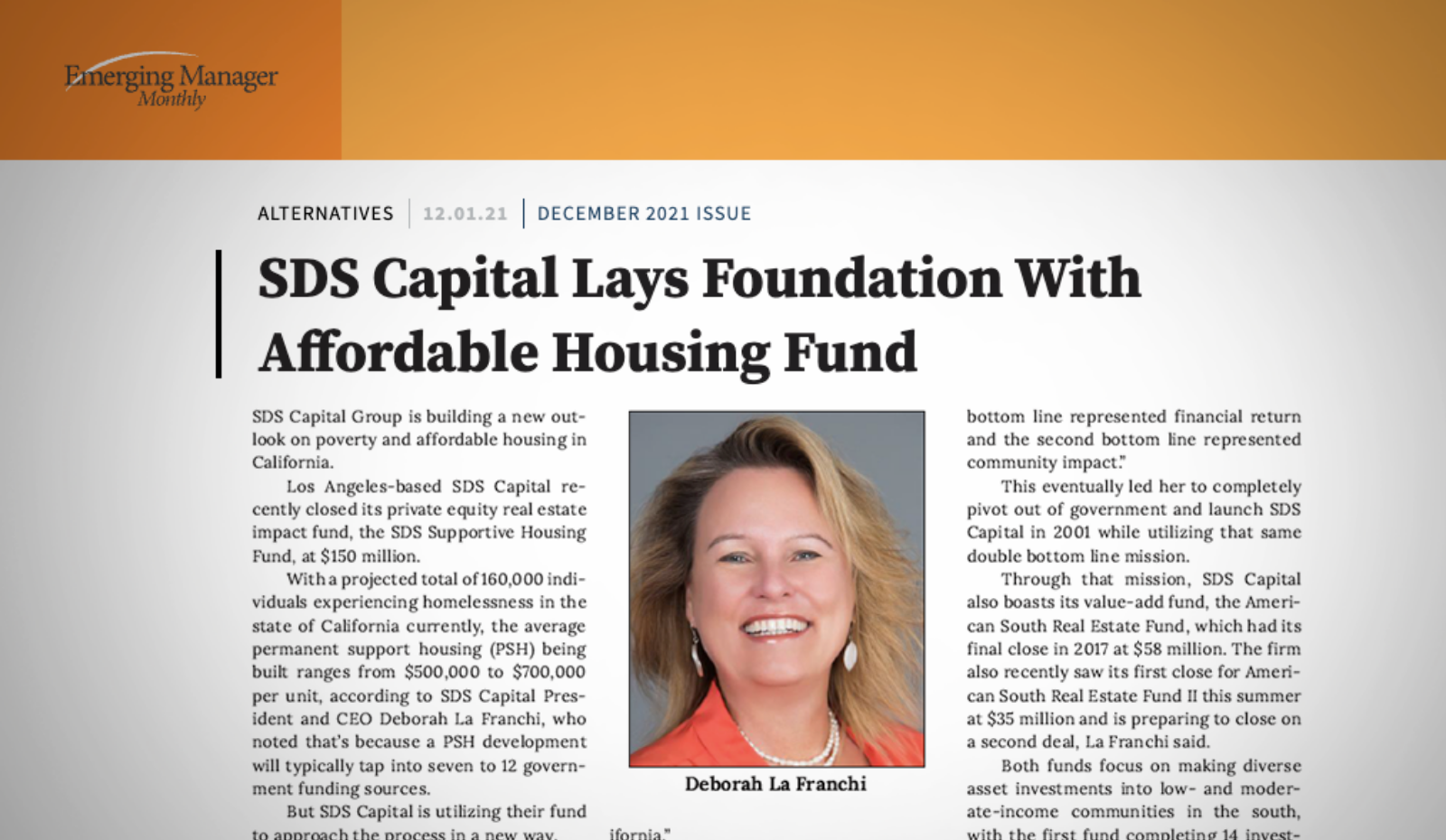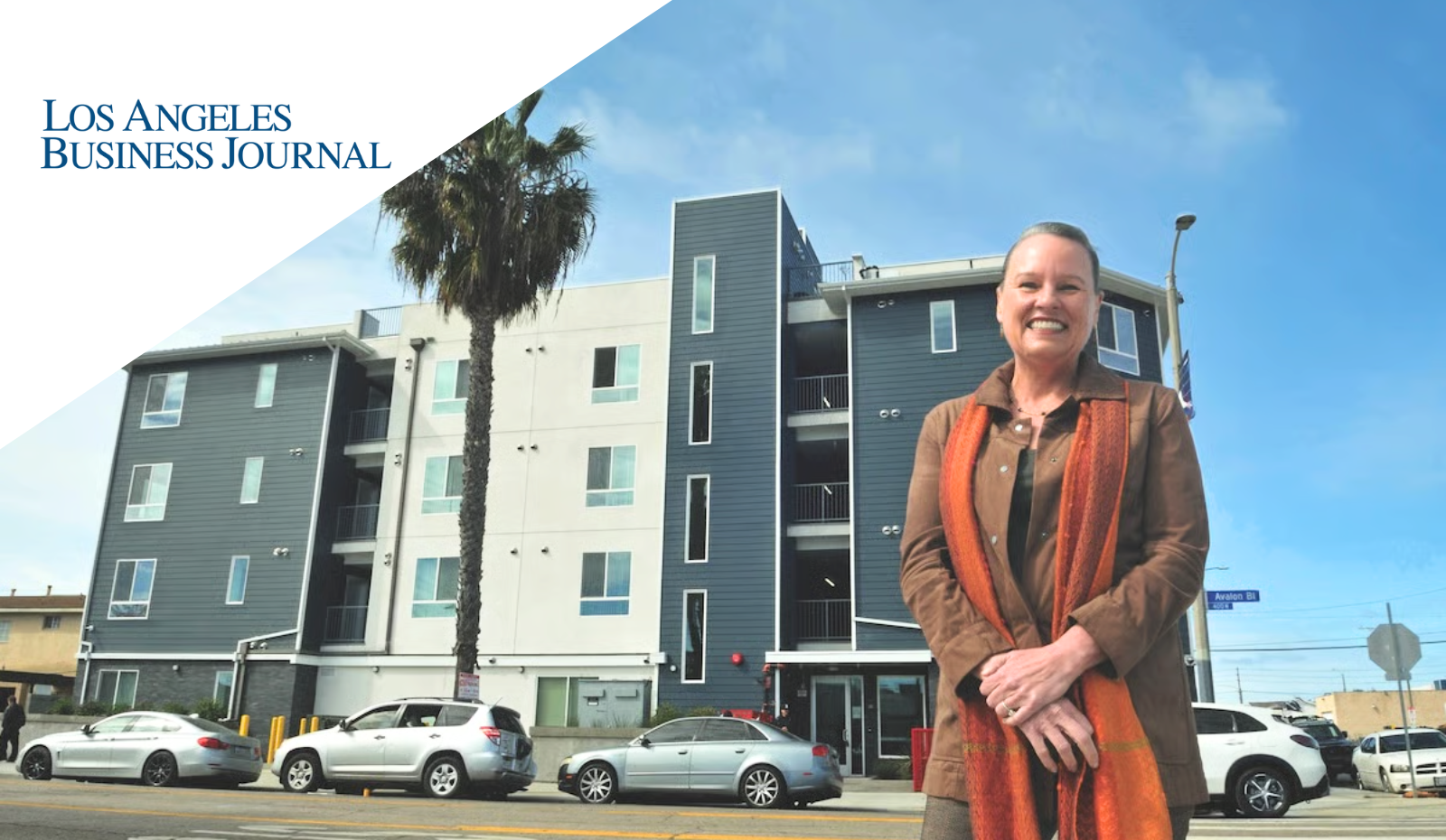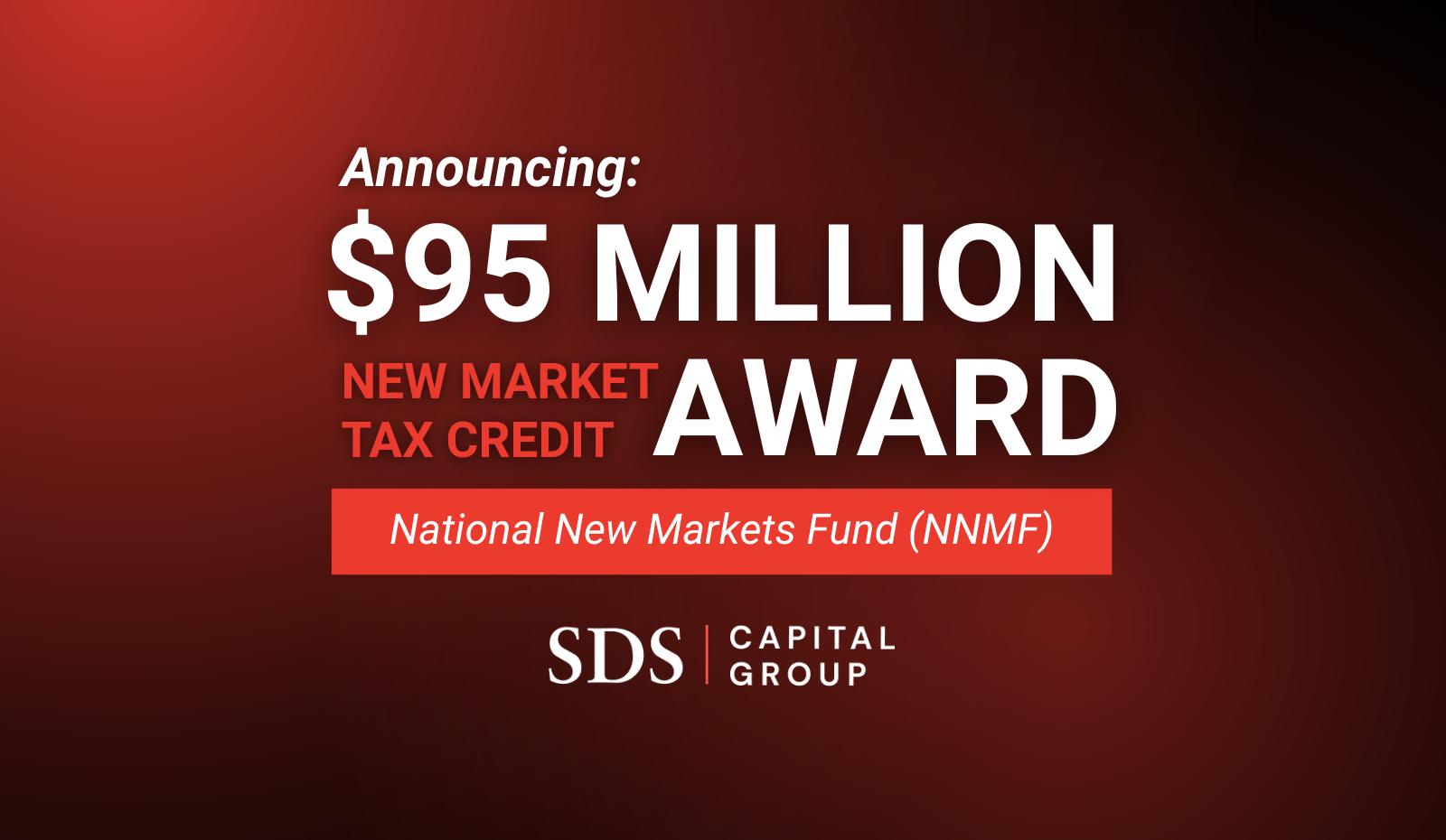SDS Capital Lays Foundation With Affordable Housing Fund
By Emerging Manager Monthly
Article Posted December, 2021
SDS Capital Group is building a new outlook on poverty and affordable housing in California.
Los Angeles-based SDS Capital recently closed its private equity real estate impact fund, the SDS Supportive Housing Fund, at $150 million.
With a projected total of 160,000 individuals experiencing homelessness in the state of California currently, the average permanent support housing (PSH) being built ranges from $500,000 to $700,000 per unit, according to SDS Capital President and CEO Deborah La Franchi, who noted that’s because a PSH development will typically tap into seven to 12 government funding sources.

Founder & CEO,
SDS Capital Group
But SDS Capital is utilizing their fund to approach the process in a new way.
“Using private equity – rather than government subsidized sources – we are financing more than 1,800 units of permanent support housing for individuals experiencing homelessness in California,” La Franchi said, adding that “we provide private equity to finance the land acquisition and construction of PSH units.”
Additionally, only one source of capital is used beyond the developer’s equity, versus the seven to 12 government funding sources, which allows for a “seamless” and low-cost closing transaction process, with underwriting and closing able to occur in less than 60 days, according to La Franchi.
“This model scales the number of units to be built, while also having a cost per unit that is a fraction of most PSH: $200,000 compared to $500,000 to $700,000,” she said.
The six-year revolving fund has already made six investments and expects to make a total of 30.
“This fund and its approach is certainly at the far end of the innovation spectrum, appealing to a more narrow set of investors,” La Franchi said. “We are relieved that we were able to raise this fund during the height of COVID and excited that private equity is playing a central role in showing a more cost-effective approach to housing our community members currently living on the streets of California.”
Investors in the Supportive Housing Fund include Ally Bank, Annenberg Foundation, California Community Foundation, CIT Bank, Charles Schwab Bank, East West Bank, Fidelity Charitable, First Republic Bank, Hudson Pacific Properties, Kaiser Permanente, Pacific Premier Bank, Synchrony Bank, Weingart Foundation and Western Alliance Bank.
La Franchi is no stranger to the affordable housing space, as she previously served as assistant deputy mayor for economic development for Los Angeles in the mid-1990s under Mayor Richard Riordan.
While there, she assisted in the development of private equity funds that would have market rates of return for investors and would specifically invest in low-income communities, the first of which was the Genesis Real Estate Fund, managed by Roy Disney’s family office Shamrock Holdings.
“At the time we called it ‘double bottom line investing’ – impact investing as a term did not yet exist,” she said. “The first bottom line represented financial return and the second bottom line represented community impact.”
This eventually led her to completely pivot out of government and launch SDS Capital in 2001 while utilizing that same double bottom line mission.
Through that mission, SDS Capital also boasts its value-add fund, the American South Real Estate Fund, which had its final close in 2017 at $58 million. The firm also recently saw its first close for American South Real Estate Fund II this summer at $35 million and is preparing to close on a second deal, La Franchi said.
Both funds focus on making diverse asset investments into low- and moderate-income communities in the south, with the first fund completing 14 investments in communities that had an average 36% poverty rate and were 80% minority and 51% African American.
Other funds include the firm’s National New Markets Fund, Develop Michigan Real Estate Fund and the Sustainable Communities Fund.
Overall, La Franchi has seen the embrace of impact investing evolve over the last 20 years and especially over the last two years.
“The past 24 months have brought more positive change to impact investing that targets low-income community projects than the prior 18 years did,” she said.
“Globally, investors are focused on green products and solutions. It is nice to see impact funds focused on reducing poverty are now receiving more attention from institutional investors”
– Deborah La Franchi, Founder & CEO, SDS Capital Group
“This heightened focus on poverty has undoubtedly been influenced by the George Floyd protests and the range of dialogue and reflection they sparked across the country. It became clearer to so many that the U.S. still has a substantial amount of work to do. We have seen many companies and investors step back and ask themselves ‘Is there a role we can play? Can we use our investment capital in innovative ways that would help address these disparities?’”
While La Franchi admitted she thinks she may have started launching impact funds “15 to 17 years too early,” she does not regret it and now finds that SDS Capital is “in the right place at the right time.”
She cited Kaiser Permanente’s $50 million investment in the Supportive Housing Fund as an example, noting that the firm had never approached or been approached by a healthcare company to invest in one of their funds.
“Healthcare companies simply weren’t active in this space,” she said. “Yet Kaiser’s $250 million Thriving Communities Fund makes impact investments across the country. They are using their capital – not just their healthcare services – to make a difference and generate return.”
“Fund managers in this space, SDS included, seek the opportunity to be evaluated and compared (in our case) to other value-add, preferred equity real estate funds,” she said. “Compare our team, our strategy, our return targets, and our track record. We ask that the door not close on us from the start simply because we are using our investment acumen to make a difference in distressed communities of color.”
“The broader the universe of investors willing to consider impact funds grows, the more SDS can make a difference in distressed communities,” she added.



